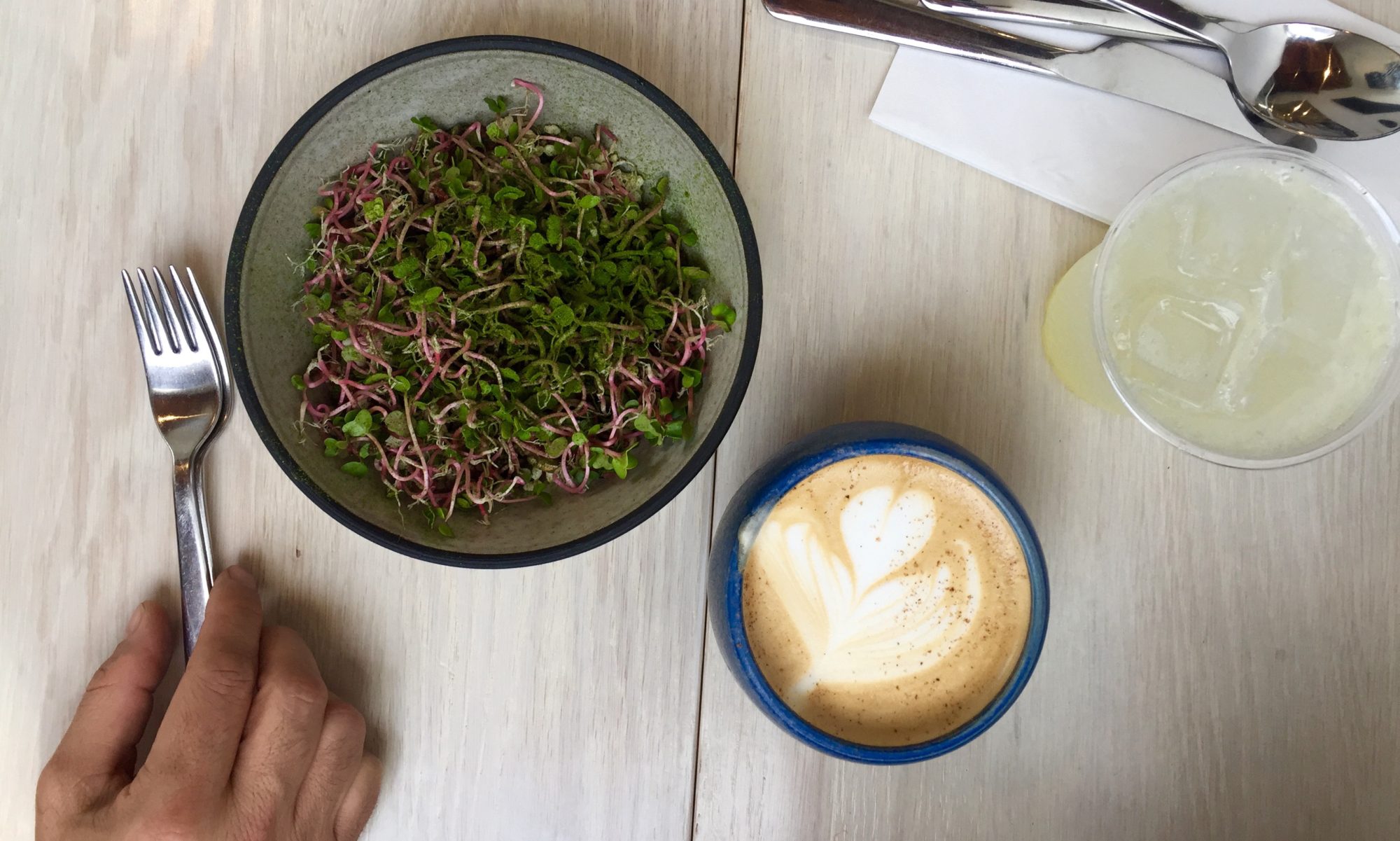In just a few short years since food blogging became an established sub-group of the blogging world, an online community of mavericks blazed a path through the wild west of online food writing. Trend setting men and women like Elise Bauer of Simply Recipes, David Lebovitz, Pim Techamuanvivit of Chez Pim, and Shauna Ahern of Gluten Free Girl pioneered an entirely new way of looking at and documenting their experience with the food.
Their work began simply. With time, however, they began to innovate, create, and establish the groundwork for an entire genre. Thanks to their early efforts, where there was once nothing but desert, there grew whole communities of food obsessed artists, consumers, and everything in between.
Recognizing the need for modernization, newspapers like the New York Times and Los Angeles Times brought food reporting online. Magazines added internet features. Media sites like Serious Eats and Eater popped up as impromptu news sources and gossip columns. Businesses that recognized the financial potential of harnessing the power of public opinion, they created online reviewing sites like Citysearch and Yelp.
The internet was the New World and in short time it was colonized with innovative new food writers, food photographers and stylists, online reviewers, gossips, and opinionated commenters. Innovation begat breakthroughs. In very little time the once small community of “food bloggers” multiplied at great speed.
And yet, there was very little talk about responsibility.
The Food Blog Code of Ethics
Back in early 2009, in a little corner booth at a Los Angeles restaurant, my friend Leah Greenstein and I—two food writers and restaurant professionals—discussed our observation of a disturbing trend within the restaurant community. Inside the kitchens and dining rooms of restaurants across the country, owners, chefs, and service professionals seem to have a mounting distrust of anyone calling themselves a food blogger. We recognized that the restaurant professionals’ swelling dislike of the online food blogging community was due in part to reckless and irresponsible conduct from people who published their views and opinions online. Yelpers wrote reviews with the intention of destroying businesses. Bloggers used their websites as a threat to do harm to restaurants or a business’ reputation.
Leah and I were frightened of what seemed to be coming: an inevitable war between a lawless group of online publishers and the establishment (restaurant professionals, food reviewers, and the law). Rather than be damaged by the reckless acts of others, Leah and I set out to write our own set of guiding principles that carved out a path on the higher ground of ethics. We hoped our manifesto would inspire us and perhaps others, to think about the power and responsibilities of online publishing on a daily basis.
Turns out, our manifesto did get a lot of people talking (and arguing). It spread through the internet like wildfire across an open prairie. Along the way we might have gotten a little scorched, but the positive results outweighed the challenges.
Soon after, the FTC stepped in to represent the first arm of the US Law. The Federal Trade Commission threatened suit against businesses that failed to reveal their financial dealings with influential online publishers. Suddenly, blogs, websites, and even profit-driven media sites began disclosing corporate sponsorships and posting their own code of ethics. Food blogging conference halls buzzed with people having heated debates over the limits of language to protect them from being prosecuted, ridiculed, or devalued for not disclosing freebies, trips, samples, give aways, and other gifts.
In many ways, the Wild West of the food blogging world began to seem a little more civil.
That is, until the mavericks became online celebrities. That’s when the trolls arrived. Hate-mongering individuals who spewed spiteful comments and emails from false accounts began popping up all across the internet.
Then Twitter came along. Twitter opened up whole new territories like a speeding train through the early gold mining towns of the Wild West. Those who did not have time to blog, had time for Tweets. Suddenly, anyone with a thought about food or restaurants could express themselves with lightening fast results. As the speed of everything online increased, the attention to responsibility and accountability dwindled. Who had time to think about the responsibilities of what they had to say? It was just 140 characters. How much trouble could they get in?
Friends, I see before us another turning point. Though the Wild West of the blogosphere may look a lot less untamed than it once was, many of its inhabitants are still feral.
No matter how much a person might say they don’t have to play by anyone’s rules, one thing is clear: No one is above the law. It doesn’t matter if you are a commenter, a blogger, a Twitter star, or even an editor of a gossip rag, eventually you will be held accountable for your actions. Courts and government agencies are building cases against the uncivilized. We are expected to be civil. We should take it upon ourselves to be responsible, accountable, and honorable before someone takes that right to self-govern away from us.
Consider this, if you create anything that goes online, you have power. If you have power, you have responsibility.
So, in hopes up giving the original Food Blog Code of Ethics a bit of a sprucing up, Leah and I got together to make it a little bit more contemporary (and short).
Please swing by the Food Blog Code of Ethics 2.0 to see if the code we wrote works for you.
Today I am moderating a panel at the Western Foodservice and Hospitality Expo with Brad Metzger of Brad Metzger Restaurant Solutions, to speak about the relationship between online food writers and chefs. If you happen to live in (or near) San Diego, please come by and join in on the conversation.
